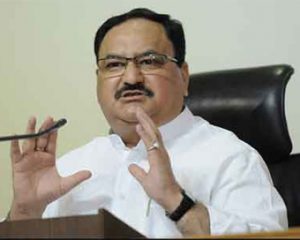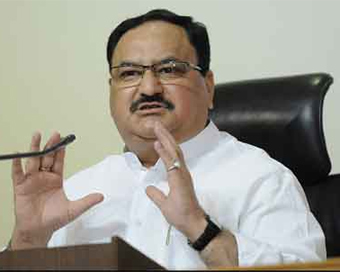
Janjivan Bureau
NEW DELHI : India’s health ministry is likely to see a substantial increase in funding, after it warned that its programmes were short of cash and sought more than $1.2 billion in additional money, according to government officials and documents seen by Reuters.
The final numbers could change when Finance Minister Arun Jaitley presents the budget for fiscal 2017/18 on Wednesday. But one official familiar with the numbers said the health ministry is expected to get a $1.5 billion, or 27 percent, increase in funding to around $7 billion.
An increase in the budget allocation, if finalized, would signal an acknowledgment from Prime Minister Narendra Modi’s administration that the country needs to ramp up spending on the sector.
Successive administrations have faced criticism from public health advocates for spending only around 1 percent of India’s gross domestic product on public health, less in percentage terms than countries like Afghanistan and Sierra Leone.
More than a million Indian children die every year before reaching the age of five. Hundreds of millions of poor people rely on India’s public health programmes which provide basic services like vaccinations, disease prevention and free drugs.
Until May last year, Jagat Prakash Nadda, the union health minister, had publicly maintained that the sector had no funding issues but needed to get better at spending the money it had.
Between 2005 and 2013, the ministry only once spent all of its allocated funds.
But letters sent by his ministry to the finance ministry between June and January, not previously disclosed, show that Nadda has also come around to the view that his department needs a larger pot to meet its public health objectives.
“These are the bare minimum requirements,” Nadda wrote in a letter to Jaitley on Jan. 10, outlining his request for additional funds. “There are several other significant programmes experiencing paucity of financial resources.”
The government has been increasing allocation to the health sector after criticism over its social sector cuts in 2015.
But pressures on the budget are rising. It must also step up spending on roads, railways and irrigation projects to stimulate growth while keeping the fiscal deficit in check.
In his letter, Nadda wrote that he needed an extra $589 million to implement a programme to screen patients for cancer and other illnesses, while the HIV/AIDS treatment programme required an infusion of $74 million.
Nadda also wrote that there was an “urgent requirement” of around $520 million for the current year’s spending, the absence of which “will adversely impact key programmes like malaria, tuberculosis, polio and other vector borne disease”.
Nadda’s letter followed requests from other health officials in the preceding months.
In November, the health ministry’s top bureaucrat, C. K. Mishra, wrote to the finance secretary saying he had been informed that his ministry would receive less funds than were promised during mid-year reviews.
The lack of adequate funding, Mishra wrote, “will give a serious setback” to new initiatives and existing programmes.
Health ministry officials also cited delays in getting funds to implement Modi’s directive to upgrade dozens of district hospitals into medical colleges, in order to add new doctors.
India has seven doctors for every 10,000 people, half the global average, according to the World Health Organization.
It is not clear how the federal budget for 2017/18, or individual state budgets that supplement it, will split health spending across various programmes.
The government official who has knowledge of the budget numbers said the increase in the health ministry budget would be sufficient for ongoing projects.
“But given escalation costs, there is no space for new health innovations,” the official said.

















